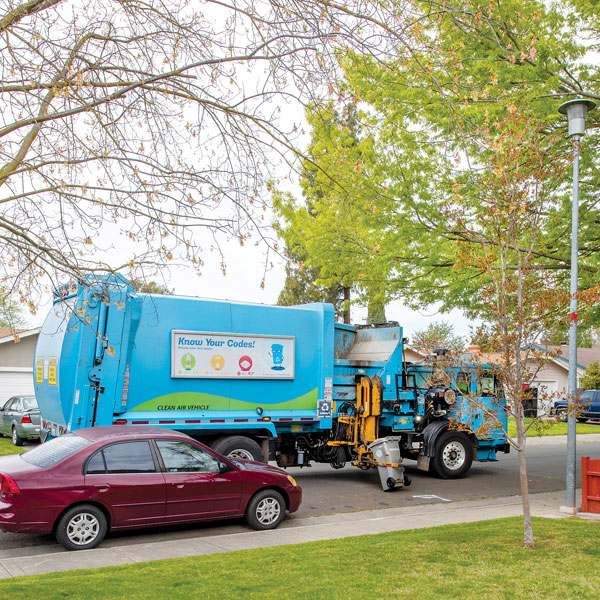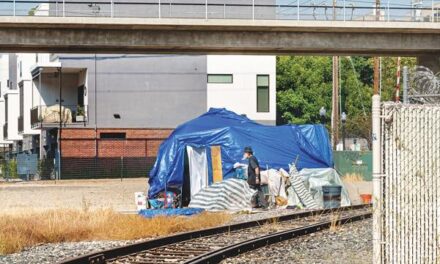Before the coronavirus turned everything upside down, Sacramento City Hall was an optimistic place.
The city’s budget for 2019-20 sang positive notes across its 451 pages. Revenue from taxes and service fees were projected to grow well into 2024. The city’s emergency reserve fund, which the City Council benchmarks at 10 percent of general fund revenue, was around $60 million. Life was good.
Today, those numbers mean nothing. Cities across the nation are reeling under financial pressures they never imagined. The big sources of city cash flow—property taxes, sales taxes, utility taxes and fees for services—are hollowing out. The $60 million emergency fund will prove embarrassingly inadequate.
This is why it’s good to see the City Council dig into a new report called “Citywide Innovation and Efficiency Assessment, Potential Strategies.” The material could help Sacramento become more fiscally responsible as it rebuilds from an economy wrecked by pandemic.
The report, written by the consulting firm Management Partners, is a blueprint for financial stability in perilous times. When the authors announced their conclusions in early March, they couldn’t foresee the catastrophic health and economic impacts of the coronavirus. But their ignorance was prescient. The COVID-19 meltdown makes the report essential.
Basically, the consultants declared Sacramento was in good financial shape as 2020 began, but headed for trouble. The consultants believe the city has too many employees who work too much overtime. Those employees receive too many benefits that can’t be sustained.
As for solutions, the number of city workers should be reduced. When possible, their jobs should be eliminated or moved into the private sector, with contractors picking up the chores.
“In the foreseeable future, the City will not be able to afford staffing levels such as those it had in 2008,” the consultants say. “The City has no choice but to either embrace alternative delivery approaches or reduce services.”
Management Partners is expert in sensitive discussions about workforce reduction and pension reform. The consultants know the City Council is progressive and pro-labor.
And they know the City Council doesn’t want to hear strategies to reduce the number of union-member city workers. Mayor Darrell Steinberg made this clear when he discussed the report, saying, “I do not want to participate in anything that has any city employee either losing a job or losing pay and benefits.”
Still, Steinberg hoped the city could trim its budget by $30 million. To get close to that number after the coronavirus subsides, the path is obvious. The city must shrink its workforce, if only by attrition, retirements and elimination of vacant positions. It must not expand its pool of salaries and benefits.
And it must consider moving city services—notably garbage collection—into private hands. Privatized garbage collection would create a one-time savings of about $20 million and annual savings up to $3.2 million, the report says.
There are other suggestions, all of which would save millions of dollars. The business tax system can be modernized. Tourist taxes can be increased. Parking can be manipulated to squeeze out more cash. The police and fire departments can use more civilian administrators. Overtime can be monitored and reduced. City ambulances can run with one firefighter and one firefighter-paramedic, rather than two trained as both firefighters and paramedics.
The consultants graded their suggestions by probability—“high” to “moderate” to “low.” They figured the chance of reducing overtime was “high.” Contracting out garbage services was “low/moderate.” Eliminating binding arbitration for police and fire labor unions was “low.”
Like all ideas that flow into City Hall, these suggestions won’t mean anything unless the City Council adopts them. Pushback began immediately from employee unions. Councilmembers vow their love for the city’s workforce. But as Steinberg says, “We have an obligation to the voters to follow through on our promises.”
Management Partners suggests a two-year window to implement the changes. As the crisis subsides, the City Council has a generational opportunity to reshape priorities and not leave Sacramento floating blindly toward the next crisis.
R.E. Graswich can be reached at regraswich@icloud.com. Follow us on Facebook, Twitter and Instagram: @insidesacramento.
















